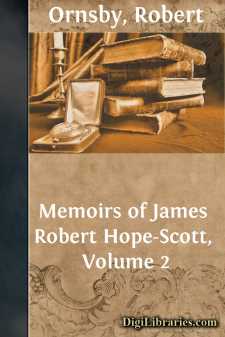Categories
- Antiques & Collectibles 13
- Architecture 36
- Art 48
- Bibles 22
- Biography & Autobiography 816
- Body, Mind & Spirit 145
- Business & Economics 28
- Children's Books 18
- Children's Fiction 14
- Computers 4
- Cooking 94
- Crafts & Hobbies 4
- Drama 346
- Education 58
- Family & Relationships 59
- Fiction 11831
- Foreign Language Study 3
- Games 19
- Gardening 17
- Health & Fitness 34
- History 1378
- House & Home 1
- Humor 147
- Juvenile Fiction 1873
- Juvenile Nonfiction 202
- Language Arts & Disciplines 89
- Law 16
- Literary Collections 686
- Literary Criticism 179
- Mathematics 13
- Medical 41
- Music 40
- Nature 179
- Non-Classifiable 1768
- Performing Arts 7
- Periodicals 1453
- Philosophy 66
- Photography 2
- Poetry 897
- Political Science 203
- Psychology 45
- Reference 154
- Religion 516
- Science 126
- Self-Help 86
- Social Science 82
- Sports & Recreation 34
- Study Aids 3
- Technology & Engineering 59
- Transportation 23
- Travel 463
- True Crime 29
Our website is made possible by displaying online advertisements to our visitors.
Please consider supporting us by disabling your ad blocker.
Memoirs of James Robert Hope-Scott, Volume 2
by: Robert Ornsby
Description:
Excerpt
CHAPTER XVIII.
1841-1842.
Mr. Hope's Pamphlet on the Jerusalem Bishopric—His Value for the Canon
Law—Continued Correspondence of Mr. Hope and Mr. Newman on the Jerusalem
Bishopric—Mr. Newman's Idea of a Monastery—Mr. Newman writes from
Littlemore, April 22, 1842—Dr. Pusey consults Mr. Hope on his Letter to
the Archbishop of Canterbury—Dr. Pusey and the Jerusalem Bishopric—
Letters of Archdeacon Manning, Mr. W. Palmer, Sir John T. Coleridge, Sir F.
Palgrave, Bishop Philpotts, and Count Senfft, on Mr. Hope's Pamphlet.
Two days after the date of the letter to Lady Henry Kerr, given in the preceding chapter (Dec. 20, 1841), took place the publication of Mr. Hope's pamphlet on the Anglo-Prussian Bishopric of Jerusalem. It may be described as a learned and very closely reasoned argument against the measure; and a dry (even if correct) analysis of it would be of little biographical interest, especially as Mr. Hope's views on the question have already been abundantly illustrated from unpublished materials. I therefore refer those of my readers who wish for more extended information to the pamphlet itself, but shall quote from the Postscript to the second edition [Footnote: The Bishopric of the United Church of England and Ireland at Jerusalem, considered in a Letter to a Friend, by James R. Hope, B.C.L., Scholar of Merton, and Chancellor of the Diocese of Salisbury. Second edition, revised, with a Postscript. London: C.J. Stewart. 1842.] an eloquent passage on Canon Law, which is as characteristic of the writer as anything I have yet been able to produce, and exhibits, I think, in a striking manner how singularly this austere subject constituted at the time the poetry of his life, and how largely the conflict between the principles of Catholic jurisprudence and Anglicanism must have influenced the reflections which ended in his conversion. Mr. Hope here refers to some remarks on his pamphlet which had appeared in one by the Rev. Frederick Denison Maurice, entitled 'Three Letters to the Rev. W. Palmer, &c.' (Rivington: 1842).
Value of the Science of Canon Law.
[Mr. Maurice] sets all lawyers at nought, and canonists he utterly despises. Hastily, indeed, I think, and for the purpose of the moment only, can he have given way to such feelings, for he needs not that I should tell him that the Church of Christ rests not upon speculative truth alone, but upon the positive institutions of our Lord and His Apostles. Surely, then, to trace those institutions from the lowest point at which they come into contact with human existence, up to the highest to which our eye can follow them, the point of union with the unseen world in which they take their rise, and from which they are the channels of grace and truth and authority to the souls of men—to trace, I say, the outward and the visible signs of sacraments, of polity, of discipline, up to the inward spiritual realities upon which they depend, which they impart and represent to faith, or shelter from profanation; to study the workings of the hidden life of the Church by those developments which, in all ages and countries, have been its necessary modes of access to human feeling and apprehension; to systematise the end gained; to learn what is universal, what partial, what temporary, what eternal, what presently obligatory, and wherefore; surely a science such as this, so noble in its object, so important in its practical bearings upon the unity and purity of the Church, and upon her relations to the temporal power, is not one of which Mr....


